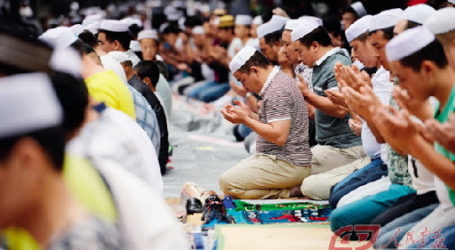MAWLID AND UNDERSTANDING THE SHARIA

 Mawlid and understanding the Sharia
Mawlid and understanding the Sharia
by Qays Arthur
I should note before continuing that, as someone who is a student of the Sharia and who is involved in teaching it as well, my concern with this topic is not so much to do with Mawlid itself as an act (which Sunni ‘Ulama differ on) but more to do with the confusion and falsehood that is peddled about the Sharia and its principles when people discuss it.
In that regard I turn my attention to some of the responses to an article of mine that was published, in part, here on MuslimVillage.com. The article was not actually about Mawlid but about the juristic principle of permissibility of matters unless otherwise proven which enjoys broad acceptance among Sunni jurists.
Yet most of the comments seemed to move right past that in a blundering anti-Mawlid frenzy that is illustrative of the typical misinformation and confusion that results when there is ignorance of the basic precepts of Sunni Jurisprudence.
I will now take this opportunity to respond to some of those comments with the hope of further clarifying some of the legal matters that are relevant to this matter.
One reader said:
“The date fixed as birthday of Our dear Prophet itself is truly the day he passed away from this world. If I ask will anyone celebrate anyone’s’ death day with pomp and show the answer is automatically NO! Then how can we celebrate our Prophet’s day of demise? Moreover our dear prophet never celebrated the birthday (nor the death day) of any of his relatives or wives, not even the death of his beloved wife Kadijah. This proves that celebrating any day as special is not in Islam except the two Eids. Those who argue the validity of celebrating should remember that we are supposed to remember our dear Prophet every minute of our life: if we are leading our life as he showed us, and not just appoint a day to remember him and venerate him.”
Firstly, quoting a text is not proof of a ruling in Jurisprudence. This is an all too common error made by those who mistake literacy for scholarship. Sound understanding of a text needs to be demonstrated with reliance on clear legal principles.
Proof of rulings in Jurisprudence is the business of specialists and not well intentioned amateurs on the Internet. Secondly, both the birth and death dates of our master Muhammad (Allah bless him and grant him peace) are differed upon, yet the 12th of Rabi’ al-Awwal is a strong and not a weak opinion regarding the birth.
Given that and the fact that we were told by the Messenger of Allah (Allah bless him and grant him peace) that actions are but by intention, and that we are to think the best of our brethren in faith, it does seem a bit mean-spirited or cynical to accuse people of celebrating the demise of the Beloved of Allah (Allah bless him and grant him peace). And being mean-spirited and cynical is not from the Sunna.
Finally, this comment is clearly the result of being unfamiliar with those upright, practicing Muslims who do hold Mawlid to be legitimate. One who is familiar with such Muslims will know that mawlids are (ideally) at least a monthly if not weekly occurrence and are by no means limited to Rabi’ al-Awwal in which there is certainly more such activity. So criticizing the matter on the basis of a scholarly difference regarding dates perhaps shows a lack of an argument more than anything else.
Another reader took exception to the example offered to illustrate the premise of the article saying:
“This is a nonsensical example which you have used. Please note the following answers: ‘I have never beat my wife’ ‘I have never had a wife how can I have beat something I never had’ I could go on but nowhere in these to answers have I admitted to beating my wife.”
This reader has made the unfortunate mistake (which occurs quite often regarding this topic) of attempting to comment on something that he is quite clearly not very familiar with: formal Logic. The example I had given is, not my personal choice, but literally a textbook example of a fallacy called plurium interrogationum (the fallacy of many questions).
The person who left that comment would do well to note that the responses he offered are answers to different questions, not to the one that was actually asked. To make the point clear “I have never beat my wife.” is the answer to the question “Have you ever beat your wife?”
That question assumes you have a wife and is asking whether you ever beat her. Also “I have never had a wife how can I have beat something I never had” is two answers to two other questions namely, “Did you ever have a wife?” and “Did you ever beat her?”
The problem with the question “Do you still beat your wife?” is that it is “loaded” in that it assumes and implies that the one being asked has/had a wife and that he used to and perhaps still does beat her which could make it a pernicious kind of question to ask.
That is why it can only take a direct yes/no response if the one being asked is (as is implied) a wife-beater otherwise a yes/no response is not possible rather the assumptions have to be addressed. Similarly the question “Did the Companions celebrate Mawlid?” implies that their having done so is central to the matter of its legitimacy which in turn implies that a claim is being made that Mawlid is legislated neither of which is the case. I hope that clears that matter up otherwise we could all benefit from a little reading in Logic.
That commenter then went on to declare that the fact that the Companions (Allah be well pleased with them) never celebrated Mawlid is proof that it is illegitimate thereby demonstrating that the entire point of the article was lost on that reader which is not surprising it being that the premise was not understood to begin with.
Then another reader chimed in with this example of how not to go about upholding the Sunna:
“What a load of crock. Why has this question turned into rocket science? This article should be entitled ‘the denial of the illegitimacy of Mawlid’. Did the companions celebrate it? NO Did their students celebrate it? NO Did their students students celebrate it? NO And finally, the ruling you referred to is in this dunya not the deen. Don’t misconstrue principles in the religion to suit your denial. When it comes to the acts of worship the exact opposite is true “NOTHING is permissible unless clearly stipulated in the Quran or the Sunnah of the Messenger. You will find Mawlid is neither.”
This reader somewhat crassly speaks to the main point of the article and appeals to a distinction between “acts of worship” or “Deen” as he put it and apparently “acts of non-worship” or “Dunya” as he said. This confused understanding of subtle juristic distinctions has become a characteristic feature of the noise that tends to surround arguments about Mawlid. It is something that merits clarification.
According to that confused position “all new matters in acts of worship require proof”. But without defining what exactly is meant by “acts of worship” that statement is one of sheer folly which is easy to illustrate. To begin with one could ask why do we divide our lives between acts of worship and acts of non-worship? Is it a case of render onto Caesar what is Caesar’s? Is not the entire purpose of our creation worship? Isn’t Dunya a bad thing? So why do we divide our actions into “Deen” and “Dunya” are we somehow secularists? Clearly none of that could be the case.
At another level one could simply ask whether that statement isn’t itself a new statement regarding “acts of worship”? If it is not a new statement about acts of worship then where is the direct quote to that effect from the Prophet (Allah bless him and grant him peace) or his blessed Companions (Allah be pleased with them). If one cannot produce a direct quote that declares “all new matters in acts of worship require proof” then that statement itself becomes an innovated matter regarding ALL acts of worship which negates itself!
In reality the position that innovations in matters of “Deen” or “worship” are not allowed while others apparently are, is one that I rather suspect is the result of a misunderstanding of the classical dichotomy between “Ibadat” vs. “Mu’amalat” which are the two global classes of actions in Jurisprudence (Fiqh). Jurists tend to divide human actions into legislated ritual acts of worship (called ibadat [عبادات]– the last vowel is stretched indicating plural as distinct from ibadah [عبادة] which just means worship), and legislated non-ritual worship (called mu’amalat).
The former would include things like the five daily prayers, fasting, and ritual sacrifice, while the latter covers things like marriage, divorce, sales agreements, social gatherings and so on. Both are ibadah (worship), as all of a Muslim’s life is supposed to be, but they are two different classes. This is an elementary legal distinction which I teach at the beginning of a very basic book called “Ascent to Felicity” by way of explaining the Arabic title which contains the term ibadat.
Now if someone wants to claim that something is from the ibadat or legislated ritual acts of worship, like prayer and zakat, then yes indeed they need to produce proof of that. That is so because saying that something is a legislated ritual act of worship is saying that the Prophet (Allah bless him and grant him peace) commanded or recommended that specific thing so proof of that is required.
So that is a departure from the general stance of permissibility of matters unless otherwise demonstrated. Yet while Hanafis and, I understand, many Malikis are firm on that distinction regarding bid’ah, many other scholars do not emphasize it. At any rate it is a semantic distinction among the schools and not a methodological one.
That is particularly true of the matter at hand. I say that because there is agreement across all opinions that when dealing with the claim that something is not legislated as a ritual but merely generally good and not opposed to the Sharia whether it be putting carpets in mosques for people to pray on, or using prayer charts, or putting domes on mosques, or building an Islamic university, or wearing a Shalwar Qamis, or conducting annual Islamic conferences (which are all acts of worship though not legislated ritual acts of worship) then proof of permissibility is not needed as it falls under the order of mu’amalat, rather proof of prohibition would be needed to prohibit it.
But as I stated in the article no one is saying that Mawlid is from the ibadat:
“…the fact of the matter is that no scholar claims that Mawlid is legislated in the Sharia. People only claim that it is a good deed, like walking an old lady across the street; or collecting the Quran into bound books; or making Thursdays and Fridays weekends, which agrees with generally accepted principles in the Sharia without contradicting others.”
That being the case, I would suggest to that reader that he re-examine his claim with a view to making a more accurate determination of who is misrepresenting the principles of Jurisprudence in this matter.
There were other comments which do not concern the Fiqh principles that I was trying to explain so I will not bother to respond to those here.
Finally, the sweeping claim that there is no such thing as a good bid’ah (innovation) is likely also a result of misunderstanding the scholarly discourse. That claim is only true if one defines bid’ah as a “new matter that is in contravention of the Sharia” which many scholars do define it as.
However, if we try to read with understanding we will see that that very definition implies that there are other kinds of new matters i.e.: those that do not contravene the Sharia. So it is not surprising that scholars do not always use the term in that first sense.
The original meaning of the term bid’ah in the Arabic language is simply something new or innovated and scholars also use the term in that sense. So Imam al-Bukhari relates in his Sahih that Sayiduna ‘Umar bin al-Khattab (Allah be pleased with him) said, “what a fine bid’ah this is” referring to the Muslims praying Taraweh prayer in one congregation under one Imam as opposed to individually as they were doing before (See Sahih al-Bukhari vol 6, 1906).
Al-Imam al-Shafi’i also used the term in its original meaning when he declared that, “Bid’ah is of two types: praiseworthy bid’ah and blameworthy bid’ah” (See Abi Na’eem’s “Hilyatul Awliya”). The same may be said of Al-‘Iz bin Abdus Salam and many others.
When one ignores the absurd semantics of modern amateurs and misguided learned men and one actually looks at what the authorities of the Religion have explained, one sees that the Umma is in broad agreement (when definitions are taken into account) that there are at least two types of new matters: good and bad.
Those who claim otherwise either lack knowledge or understanding or both.
The truth, as our Imams have pointed out (in different ways and with different terms), is that if a new matter can be demonstrated to be in contravention of the Sharia then it is rejected and if not then not. Otherwise scholars would not have differed about Mawlid at all! But they have and that, if nothing else, is a reality on this issue that no one differs about so why don’t we just respect that fact and each other with adab even if we disagree.
We ask Allah for guidance and the ability to not only quote but to understand. (T/P3/R01)
Mi’raj Islamic News Agency (MINA)
Source: MuslimVillage.com





